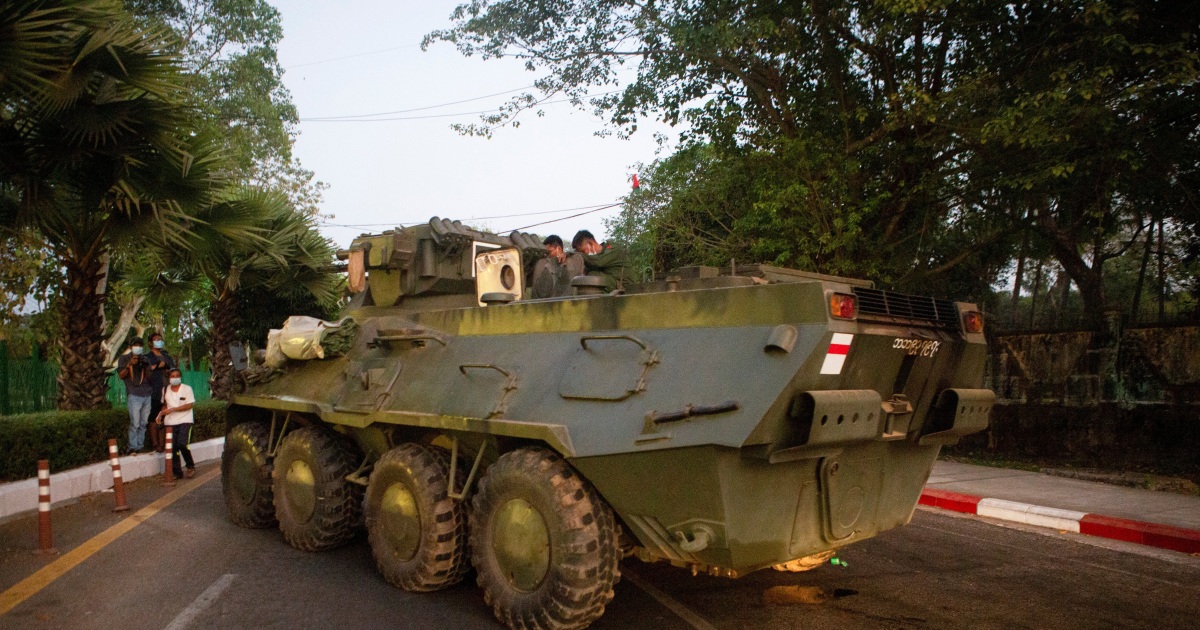Hundreds of thousands of protesters took to the streets in Myanmar for the ninth day of anti-coup demonstrations on Sunday, as new army rulers struggled to contain a strike by government officials that could undermine their ability to govern the country.
Trains in parts of the country stopped running after officials refused to work, local media reported, while the military sent soldiers to power plants only to be confronted by an angry crowd.
As night fell, armored vehicles were seen in the commercial capital of Yangon for the first time since the coup, witnesses said.
A civil disobedience movement to protest the February 1 coup that ousted the civilian government led by Aung San Suu Kyi started with doctors. It now affects several government departments.
The board ordered public officials to return to work, threatening to act. The Army has carried out mass arrests every night and on Saturday it has given itself broad powers to detain people and search private properties.
But hundreds of railway workers joined demonstrations in Yangon on Sunday, as police went to their residential complex outside the city to send them back to work. Police were forced to leave after an angry mob gathered, according to a live broadcast from Myanmar Now.
Soldiers were sent to power plants in the northern state of Kachin, leading to a clash with protesters who said they believed they intended to cut electricity to make nightly arrests.
“The military has tried to control sources of electricity since yesterday,” said Awng Kham, a local politician. “They may be able to control energy at night while doing their business at night.”
Several energy departments in Yangon said in Facebook posts that they would refuse to cut power and expressed support for the protesters. “Our duty is to provide electricity, not to cut,” said an official, who asked not to be identified for fear of retaliation, adding that some colleagues were participating in the strike.
The government and army were not immediately available for comment.
On Sunday, engineering students marched through downtown Yangon, the largest city, wearing white and carrying placards demanding the release of deposed leader Suu Kyi, who has been detained since the coup and accused of importing walkie talkies.
A fleet of road buses drove slowly through the city with horns blaring, part of the biggest street protests in more than a decade.
Download the NBC News app for breaking news and politics
A convoy of motorbikes and cars passed through the capital Naypyitaw. In the southeastern coastal town of Dawei, a band played drums while the crowd marched in the hot sun. In Waimaw, Kachin state, crowds carried flags and sang revolutionary songs.
Many of the protesters across the country displayed images of Suu Kyi.
His detention will expire on Monday. His lawyer, Khin Maung Zaw, could not be reached for comment.
More than 384 people have been detained since the coup, the monitoring group Association for Assistance to Political Prisoners said, in a wave of nighttime arrests.
On Saturday night, the army reinstated a law requiring people to report night visitors to their homes, allowing security forces to detain suspects and search private properties without court approval, and ordered the arrest of well-known protest supporters in pasta.
President Joe Biden announced last week that his government will impose sanctions on those involved in the coup and demanded that the country immediately return power to that nation’s democratically elected government.

